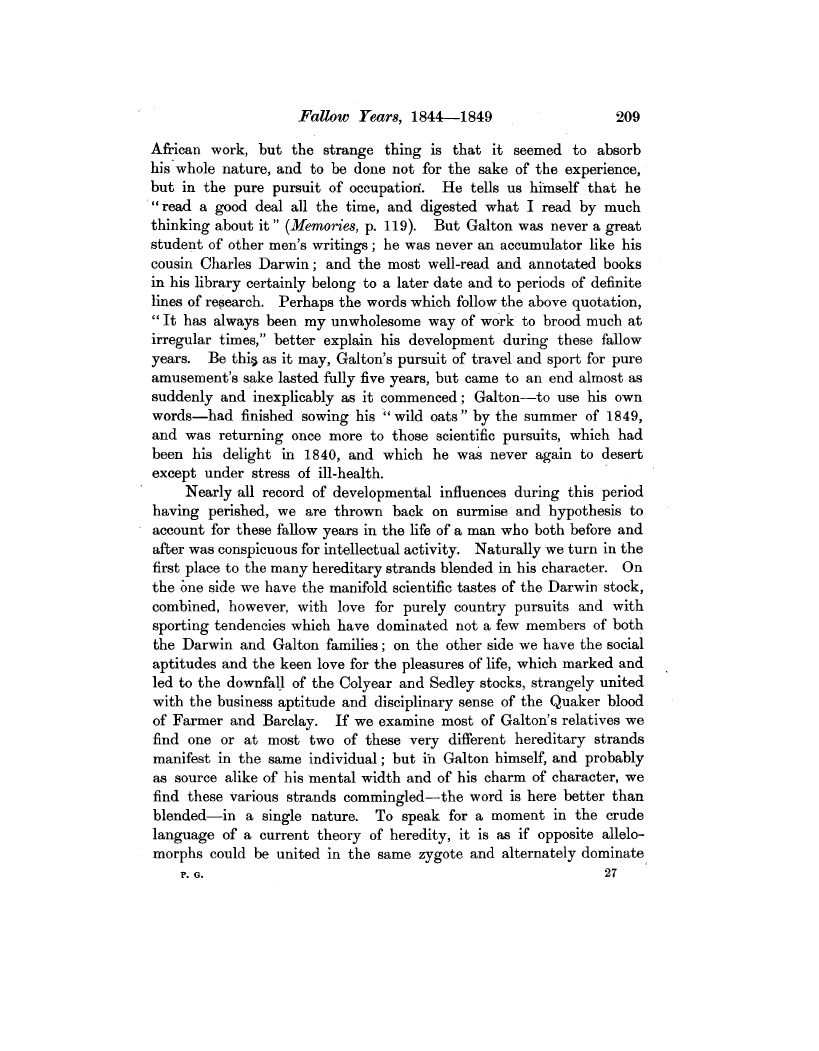Fallow Years, 1844-1849 209
African work, but the strange thing is that it seemed to absorb his whole nature, and to be done not for the sake of the experience, but in the pure pursuit of occupation. He tells us himself that he "read a good deal all the time, and digested what I read by much thinking about it " (Memories, p. 119). But Galton was never a great student of other men's writings ; he was never an accumulator like his cousin Charles Darwin ; and the most well-read and annotated books in his library certainly belong to a later date and to periods of definite lines of research. Perhaps the words which follow the above quotation, " It has always been my unwholesome way of work to brood much at irregular times," better explain his development during these fallow years. Be this as it may, Galton's pursuit of travel and sport for pure amusement's sake lasted fully five years, but came to an end almost as suddenly and inexplicably as it commenced ; Galton-to use his own words-had finished sowing his wild oats " by the summer of 1849, and was returning once more to those scientific pursuits, which had been his delight in 1840, and which he was never again to desert except under stress of ill-health.
Nearly all record of developmental influences during this period having perished, we are thrown back on surmise and hypothesis to account for these fallow years in the life of a man who both before and after was conspicuous for intellectual activity. Naturally we turn in the first place to the many hereditary strands blended in his character. On the one side we have the manifold scientific tastes of the Darwin stock, combined, however, with love for purely country pursuits and with sporting tendencies which have dominated not a few members of both the Darwin and Galton families ; on the other side we have the social aptitudes and the keen love for the pleasures of life, which marked and led to the downfall of the Colyear and Sedley stocks, strangely united with the business aptitude and disciplinary sense of the Quaker blood of Farmer and Barclay. If we examine most of Galton's relatives we find one or at most two of these very different hereditary strands manifest in the same individual ; but in Galton himself, and probably as source alike of his mental width and of his charm of character, we find these various strands commingled-the word is here better than blended-in a single nature. To speak for a moment in the crude language of a current theory of heredity, it is as if opposite allelomorphs could be united in the same zygote and alternately dominate
P. G. 27
